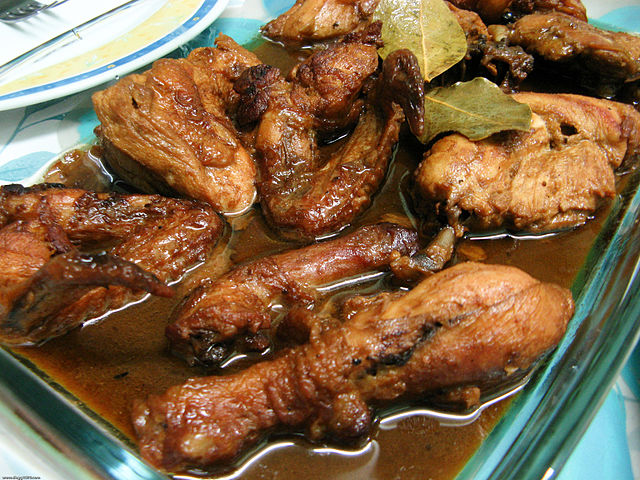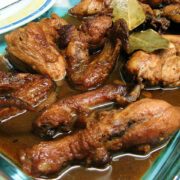
FILIPINOS took to social media to criticize the Philippine Department of Trade and Industry’s (DTI) proposal to “standardize” adobo and other staple dishes.
In a statement released Friday, July 9, the agency said a technical committee on Filipino dishes has been formed and tasked to develop Philippine National Standards (PNS) for popular dishes such as adobo, sinigang, lechon, and sisig.
“BPS/TC 92 has started developing a PNS for Philippine adobo on 11 May 2021 with “Kulinarya: A Guidebook to Philippine Cuisine” serving as their main reference in creating a comprehensive guide in preparing and cooking the Filipino favorite cuisine – adobo,” said the DTI.
In response, Bureau of Philippine Standards (BPS) Director Neil Catajay said that the development of standards on dishes will reportedly pave the way toward a more distinguished Filipino food culture while establishing the common ground for food businesses.
“Standardizing the basic cooking technique for Philippine adobo will help ordinary citizens, foodies, and food businesses determine and maintain the authentic Filipino adobo taste,” he added.
However, the move was met with criticism from Filipinos online.
“Whatever form of adobo you make is a valid form of adobo, the same way that whatever Filipino culture you come from, you are still Filipino. The beauty of Filipino food is its diversity that is rooted in our diverse cultural heritage, not some cookbook,” said one Twitter user in response to a news tweet by Rappler.
Another user tweeted: “The point of their popularity is there’s no standard recipe. The blooming variance of Filipino dishes is characteristic of the varied culture we produce. ‘Standardizing’ misses the point. The beauty of Filipino culture is in multiplicity yet capacity to unite against colonizers.”
Meanwhile, one Twitter user questioned if “standardizing” Filipino dishes is possible.
“Can we really standardize cooking our ‘cultural staples and dishes’? Aren’t we stepping the line of cooking as an art and that local knowledge that is inherent and unique to cultures?” the tweet read.
Another dismissed the department’s move, saying, “Ignore the purists and food zealots. There is no such thing as ‘standard’ or ‘authentic’ cuisine.”
On Facebook, Filipinos told the DTI that there were more important issues to address.
“Maybe DTI should focus on finding market for agri products of farmers,” said one Facebook user in a comment.
Another one pointed out: “Standardize adobo? Some like it maasim with suka (sour with vinegar). Some sweet, some dark with toyo (soy sauce). Maybe you can help address inflation of food supply instead.”
Other netizens also took the opportunity to criticize the Philippine government.
“Government can’t set a bar for themselves. So they’re setting a bar on adobo instead,” tweeted one netizen.
“When nothing’s right, let’s standardize how to cook Adobo and Sinigang. What a way to solve the Pandemic and the govt’s incompetence,” another user said.
For int’l promo
In response to the criticism, the DTI clarified that the move will only be for international promotion purposes, and not mandatory for local households.
“We are not talking about a standard but instead we want to have a basic traditional recipe that we can promote internationally… This will not be mandatory. Because we know, if you ask everyone here, they will say the best tasting adobo is the one cooked in our home,” DTI Secretary Mon Lopez said in Filipino during a public briefing.
“We will not standardize the recipe. This will not be mandatory, we’re doing this because we want to have a basic traditional recipe we can promote abroad, the so-called Philippines adobo,” he added.
He also maintained that creativity in recipes is encouraged and welcomed.
“We encourage creativity, innovation and even if there are millions of recipes, we all welcome that,” said Lopez.





